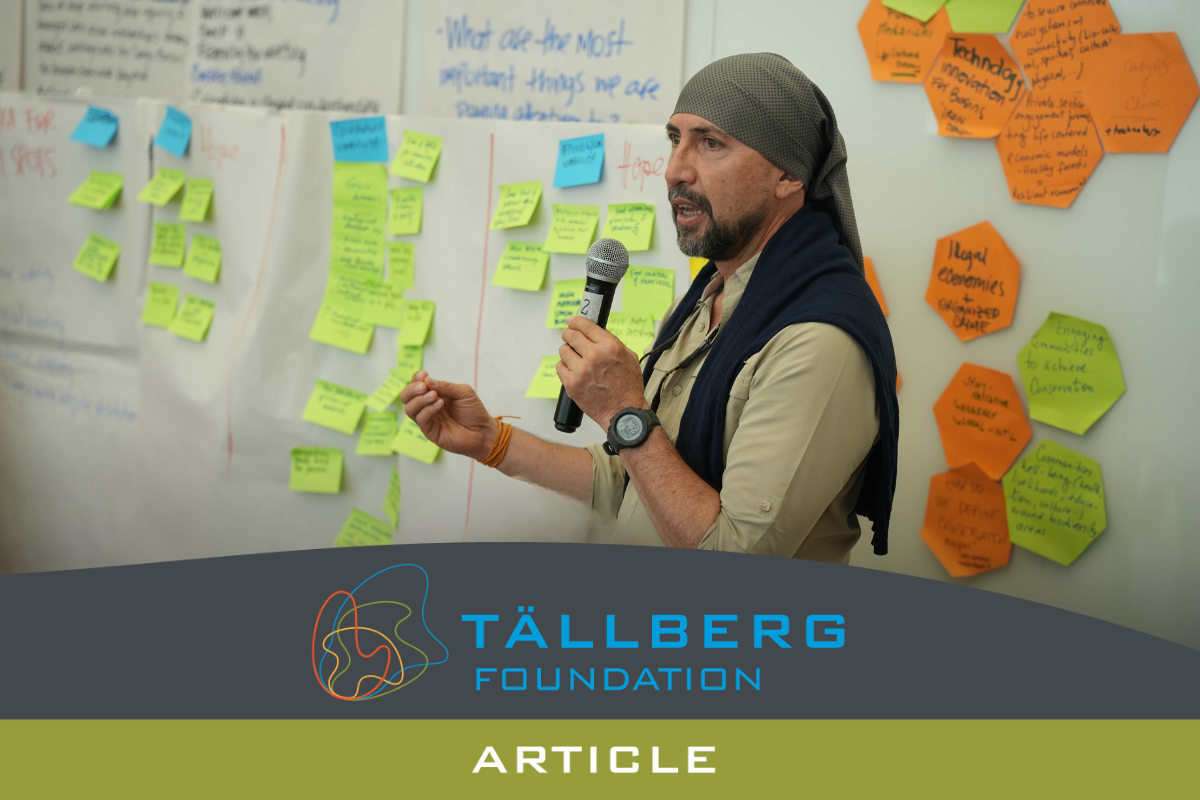The summer of 2023 might be remembered as the year that people almost everywhere finally began to understand what global warming means: unrelenting record heat, widespread drought, massive wildfires, excessive rain, destructive 100-year floods. Anyone who’s surprised simply hasn’t been paying attention or has been consumed by foolish debate over causality. But like the proverbial frogs in the slow-heating water, most people have been content to ignore the evidence.
Is it too late once the water is boiling?
In her new book, Pricing the Priceless: The Financial Transformation to Value the Planet, Solve the Climate Crisis, and Protect Our Most Precious Asset, Paula DiPerna emphatically argues that the key to escaping the boiling water is simple: put a seriously high price on carbon. As she writes, “Pricing makes an asset visible, illuminating the value of saving and protecting it, and the cost of losing it.”
The irony of what DiPerna has to say—in her book and in a recent New Thinking for a New World podcast—is that no one can disagree, either with her thesis or her examples. When she asks, “Why do our capital markets value companies like Uber which offer services we can live without at billions of dollars, but our atmosphere on which all life depends at ZERO?” even people addicted to their Uber accounts are likely to be stumped.
But hers is not a rhetorical question. In a world where the cost and consequences of abusing natural systems is everywhere increasingly evident, DiPerna’s conclusion is crystal clear: “The sluggish pace of infusing ecosystem service accounting and environmental economics into actual financial practice is the central cause of our climate change crisis.”
Admittedly, that’s not as exciting as protesters gluing themselves to a British highway or defacing classic artworks in the name of “Just Stop Oil,” but DiPerna is persuaded that analysis and action should focus on “do ability.” As she wrote, “It may well take several generations to make a complete transition out of current fossil fuel-based norms, if we ever can, especially given the paralysis that grips the world on this and virtually every other topic of global importance.”
So, how to break the paralysis? The problem is “the distinction between big ideas and executing big ideas. I feel that, as a practical matter, we’ve almost got no appetite left for big ideas.” We need action.
DiPerna explains the challenge using the metaphor of a slot machine, where the player is looking for three cherries. In the real world, she argues that action requires “science, policy and capital” all surfacing at the same time. However, the problem is that each of those works on a different logic and on a different timeline.
The scientific method is driven by experimentation, observations, results, published papers and peer review. Science can’t be rushed.
Policy is driven by politics, which is driven—at least in democracies—by electoral cycles. Even when politicians and policy makers have the scientific insights, action often does not follow, “Because first, they knew about but it was tomorrow [after the next election]; second, the public wasn’t clamoring for it; third, the inertia of a political system that gets heavier and heavier and heavier.” She goes on: “Even good, wishful, hopeful policy runs on a political timeline.”
Then there is capital, “Which operates on all kinds of timelines, as short as a quarterly returns call, as long as an intergenerational portfolio transfer from a grandfather to a granddaughter.” Capital will flow where returns can be found, but not without help.
DiPerna points out that “The three things have not aligned. What needs to happen is to align the scientific information with the application of capital with…regulatory certainty” created by policy makers who understand that providing a realistic, predictable carbon price is critical to moving the planet away from over consuming hydrocarbons and abusing natural systems.
DiPerna’s frustration is obvious in the podcast and in Pricing the Priceless. For example, she details an innovative financial innovation called the forest resilience bond that encourages investors to fund—and make money from funding—efforts to make forests resilient. “Money in up front, risk born by the investors, forest made more resilient, benefits later.” But only a couple such bonds have been issued; tiny compared to the problem of massive forest fires in the American West, Canada, Siberia and elsewhere. Why hasn’t the environmentalist premier of Canada issued bonds to renovate his country’s burning forests? Why hasn’t the head of JP Morgan, one of the largest and most innovative commercial banks, tried to persuade him to do so? Her answer: “Such instruments are still fairly new. So it could just be an informational problem.” Or maybe they aren’t paying attention…
Then she returns to her core point: “Without a carbon price none of the more exotic things are going to get anywhere.” But even at the center of things, programs to put a price on carbon have evolved slowly especially outside of Europe. According to the World Bank, today less than a quarter of global greenhouse gas emissions are now covered by carbon taxes or emissions trading systems. Why?
DiPerna believes that, “People don’t do things because they’re afraid they’re not doable….You know, all these things I think can be done. It’s a question of imagination. Absence of imagination is an extremely important factor in why we’re stuck with this problem….It’s probably because it’s easier to kick the can, because the due date seems to keep being 2040, 2050.”
The problem, of course, is that the real “due date” is clearly much sooner. What to do? “I think part of the ‘do ability’ issue is people in authority [should ask] what can I do in five years? What can I actually do in five years? Can I get five years’ worth of reduction? Can I get five years’ worth of expanded forest resilience bonds? Can I get five years of anything that matters? And then, I could get five more and five more, but if we start, if everything is on a 20- or 40-year horizon, it’s just too easy not to do anything.”
Meanwhile, June 2023 was the hottest June on record according to the US government’s global temperature analysis.
What do you think? Let us know by commenting below
***
Paula DiPerna recently spoke with Alan Stoga as part of the Tällberg Foundation’s “New Thinking for a New World” podcast series. Listen to their conversation here or find us on a podcast platform of your choice (Apple podcast, Spotify, Google podcast, Youtube, etc).
ABOUT THE GUEST
 Paula DiPerna is a recognized expert in environmental finance issues and a strategic adviser on environmental and philanthropic policies to public and private organizations around the world. She serves currently as Special Advisor to CDP (formerly known as the Carbon Disclosure Project). In addition, Ms. DiPerna serves on the Distinguished Advisory Board of the Integrity Council for the Voluntary Carbon Market (ICVCM); the Board of Advisors of Global Kids, whose mission is to develop global citizenship; and the Sustainability Advisory Council of Jupiter Asset Management. DiPerna also serves on the Board of Directors of The HistoryMakers in the US, the largest oral and video archive of profiles of 20th and 21st century African-American leaders across all sectors.
Paula DiPerna is a recognized expert in environmental finance issues and a strategic adviser on environmental and philanthropic policies to public and private organizations around the world. She serves currently as Special Advisor to CDP (formerly known as the Carbon Disclosure Project). In addition, Ms. DiPerna serves on the Distinguished Advisory Board of the Integrity Council for the Voluntary Carbon Market (ICVCM); the Board of Advisors of Global Kids, whose mission is to develop global citizenship; and the Sustainability Advisory Council of Jupiter Asset Management. DiPerna also serves on the Board of Directors of The HistoryMakers in the US, the largest oral and video archive of profiles of 20th and 21st century African-American leaders across all sectors.
Previously, Ms. DiPerna was President of the International division of the Chicago Climate Exchange, President of the Joyce Foundation (a major public policy philanthropy known for innovation), and Vice President for International Affairs for the Cousteau Society, among other accomplishments. She is a widely published author and frequent public speaker.





Dear Paula, I have been working in sustainability and alternatives to development for almost 20 years with indigenous/peasants communities worldwide; and the answer to your question: we value UBER more than the atmosphere because of our human/econocentric-historial materialism hegemonic system that we still teach at every western style school in the world. The consciousness that created the problem can hardly think in alternatives as Thomas Kuhn on “The structure of scientific revolutions”. Kind regards !